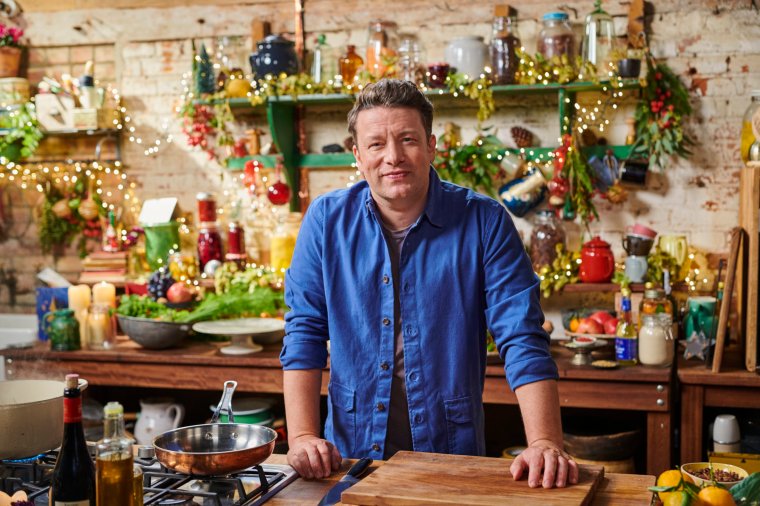Were the food world represented by a collection of pies, Jamie Oliver’s fingers would be in every single one. He is a man who transcends even “celebrity chef” status, someone probably talked about as much as the prime minister or David Beckham, at least here in Britain.
Oliver’s most recent TV show, Jamie’s £1 Wonders, averaged a consolidated viewership of 1.8 million people – hardly small fry in 2023 – and was up 81 per cent on the slot average. And the chef is second only to JK Rowling in terms of book sales in the UK. By 2019, he had sold almost 15 million books, earning him £180m.
But Oliver has seen less financial success in restaurants. His Jamie’s Italian brand, a former high street empire, closed in 2019, owing creditors a reported £83m. He did all he could to save it but its popularity had waned. Charcuterie boards and posh olives were no longer a novel proposition to the middle income consumer. In the chain’s twilight years, it had lost every last ounce of its charm.
By comparison, as a restaurant fanatic, seeing his Fifteen group crumble was dismaying. After opening in 2002, it trained – at a cost of £40,000 each – 15 people from disadvantaged backgrounds per year. More than 80 per cent of all Oliver’s apprentices were still working in the hospitality industry by the time the two sites, in Cornwall and London, closed. The food at Fifteen was good, the atmosphere arresting, and the concept admirable.
But to learn Oliver is planning to launch a new chain of upmarket restaurants in Britain is a little bemusing. Is it really what diners, strapped by the cost of living crisis, want? According to a report in The Times, the first of what will be a number of restaurants will serve a seasonal menu – something in vogue, certainly – at a site in Covent Garden. A premium West End location in a pocket of the country replete with fine eating.
Importantly, the price point will be a step above the casual dining market, which is hardly a rewarding place to be right now. With budgets squeezed, people are seeking out the cheap and cheerful, or a blowout-special-occasion sort of meal. Last week’s focus on Prezzo’s demise will attest to that. Who wants to pay £12 for inexcusably ordinary pasta?
It is almost impossible to imagine just how high-end Oliver can go, though. His man of the people image has been roundly and intelligently cultivated – it is what has steered him to such fame in the first place. Once of the eminently fashionable River Cafe in bougie west London, nobody is denying his skill or knowledge as a chef. It’s just that he stepped away from that end of the market voraciously, and early into his career, to teach school children about chicken nuggets and serve prosecco to the masses. Today, his face is plastered on petrol station coronation chicken sandwiches and budget samosas.
Oliver told the newspaper that losing his restaurants in the UK was one of the hardest times of his life and that “being a positive part of the restaurant industry is very close to my heart.” It isn’t any wonder he’s set on entering the fray for a second crack. Most people who love food dream of having a restaurant and Oliver is in the privileged position to be able to try again, even after what was clearly a catastrophic set of circumstances the first time round.
We should not forget the chef still has – through franchises, mostly – restaurants around the world. There are dozens of branded pizzerias across Asia and still a handful of his original Jamie’s Italian venues in the likes of Brazil, Austria, and Singapore. Whatever difficult business acumen that led to the decimation of his first UK chain is likely to have been long since exonerated. Clearly, the Jamie Oliver Group is in a better position to push on.

But the supposition, “who is this for?” is haunting. A new restaurant chain from someone now better known as an ambassador for Tesco doesn’t appear particularly exciting.
It was reported the launch is the first in a series of initiatives by Oliver after he hired the former Vue International top dog Kevin Styles as CEO. The latter apparently has designs on more cupboard groceries, homeware, and frozen “chef-quality” meals. It all sounds a little Ratatouille, (the Pixar movie in which an esteemed chef dies only for his second in command to take charge and churn out collections of ready meals bearing his name). In a packet burrito, the romanticism of serious cooking is quickly lost.
I have always been a fan of Jamie Oliver, and I say that as someone who was directly affected by his meddling with school dinners (where there were turkey burgers and chips, there was watery tomato pasta, and I will never forget the furore in the canteen).
I hope his new restaurants perform. But the word “chain” does not sit well. Were he to reopen a Fifteen, I’d be among the first through the doors, as would countless others I’m sure. Less convincing is another round of Jamie’s Italians, even if the bar is raised a notch or two.


